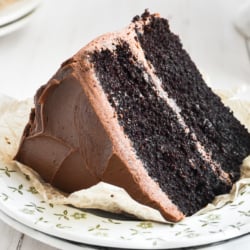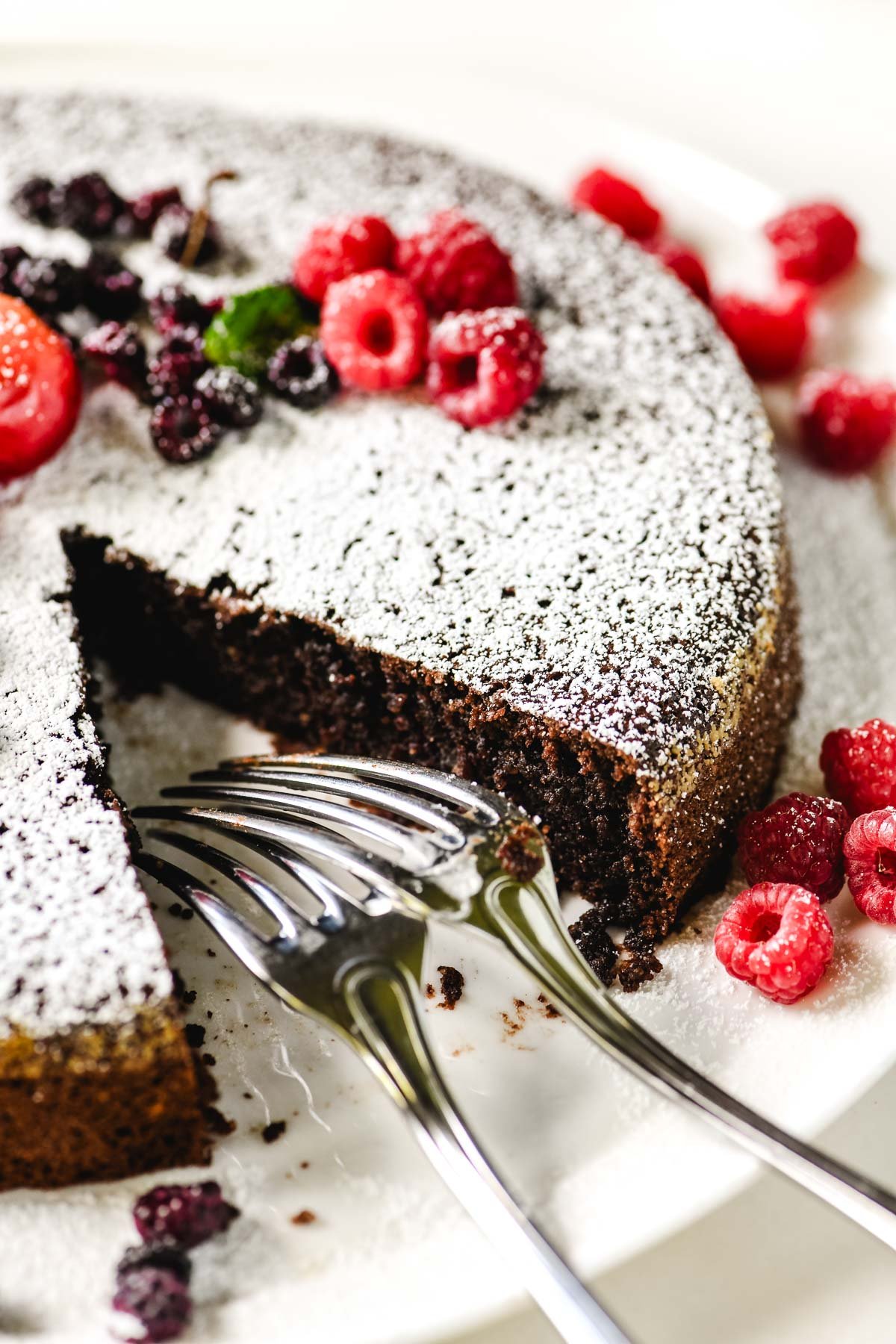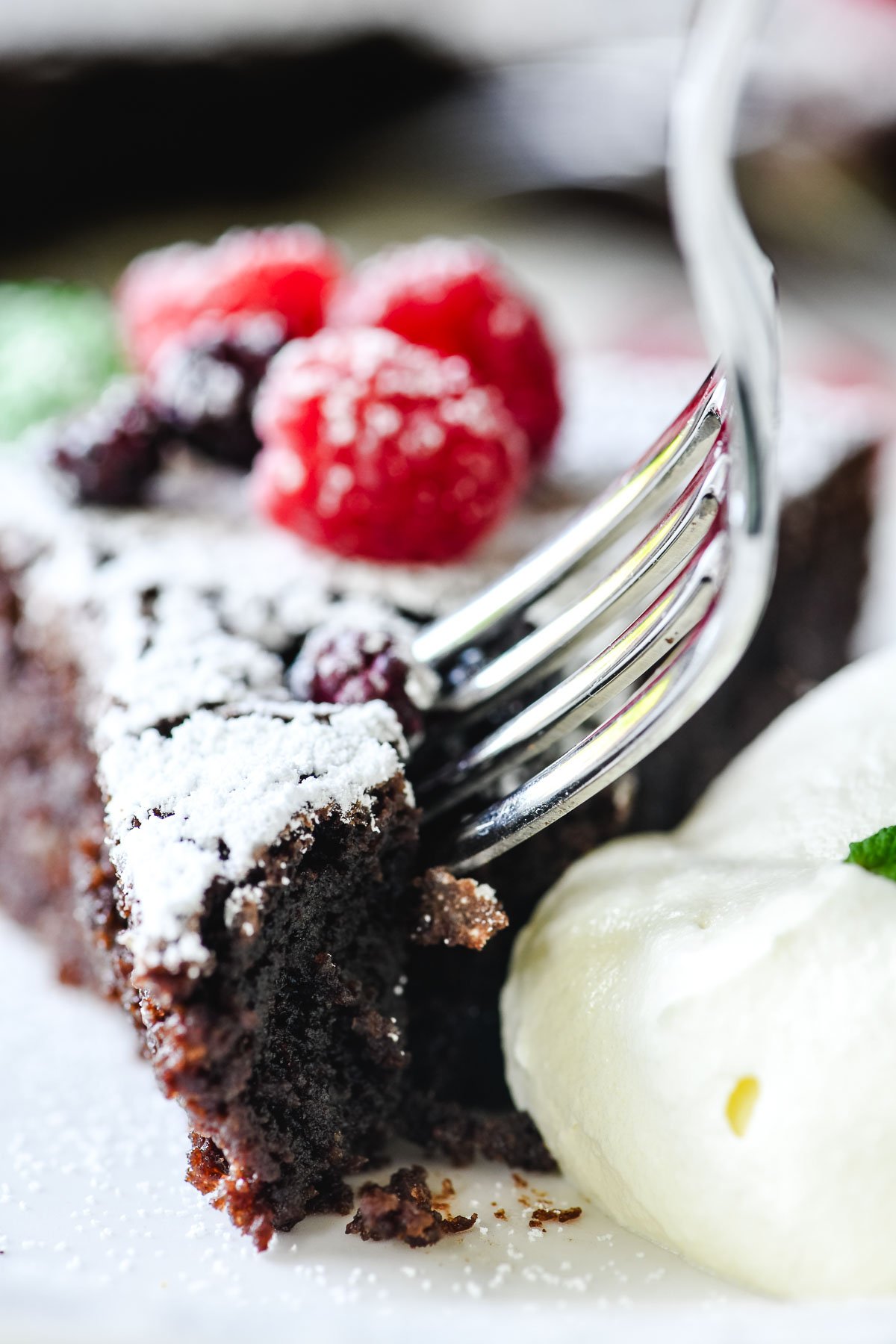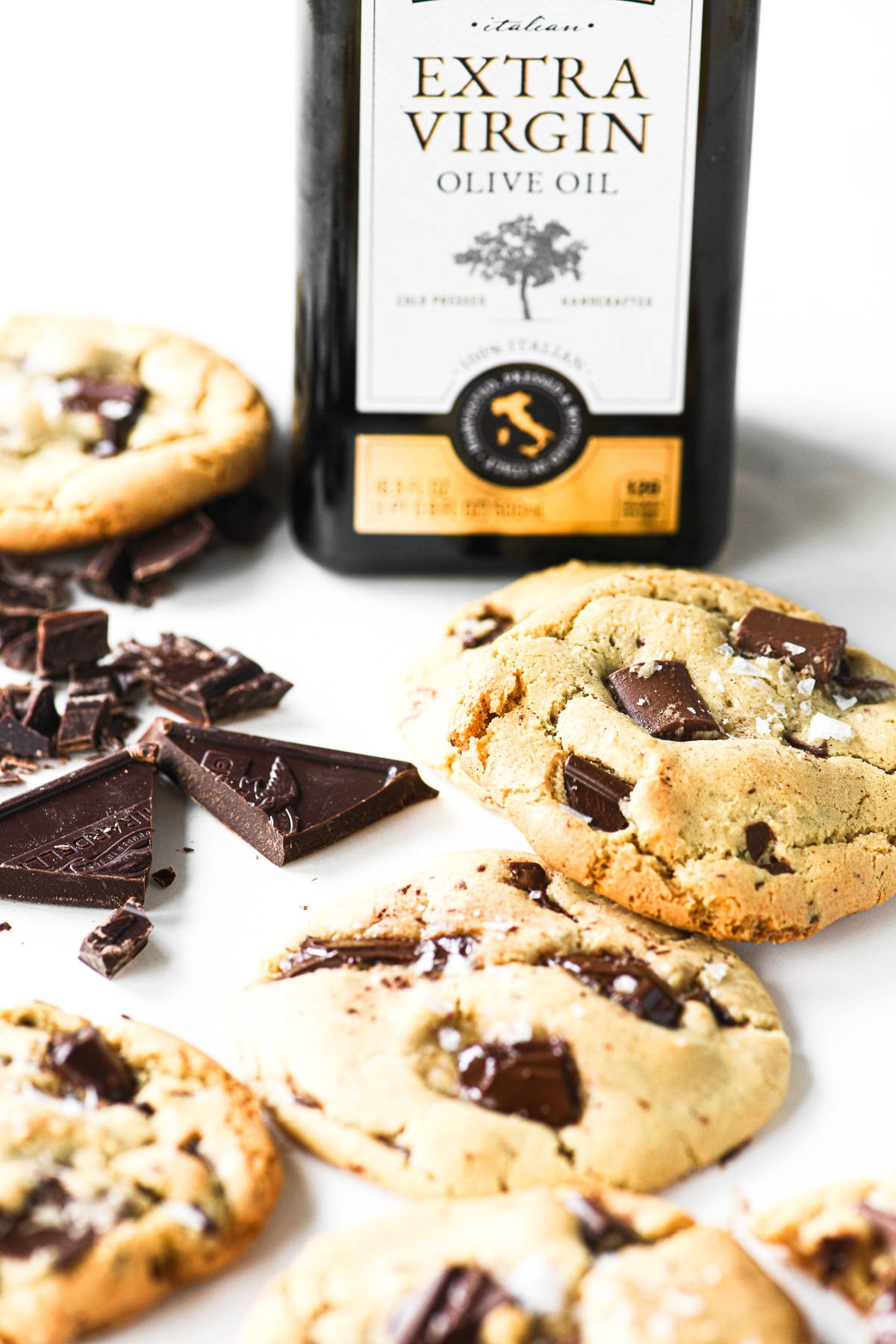Baking with olive oil is a healthier alternative to butter or other oils ~ the moist texture is amazing, and the flavor payoff is subtle but game changing!
should you be baking with olive oil?
I think you should consider it! I’ve had big success using olive oil in place of butter or other oils in my baking lately, and there are a lot of good reasons why this makes sense from a health, flavor, and texture standpoint. You probably already know that consuming olive oil is good for you (very good for you!) It can help you fight major diseases and live a longer life. And even in small amounts like you’d get eating a slice of lemon olive oil cake, you’ll still reap the benefits of this amazing oil.
Make this the year you bake with olive oil!
what’s in this post
- should you be baking with olive oil?
- health benefits of baking with olive oil
- moisture and texture with olive oil
- flavor boost from baking with olive oil
- best olive oil for baking
- how to substitute olive oil in baking recipes
- best types of recipes for olive oil
- flavor pairings with olive oil
- Baking with olive oil recipes
health benefits of baking with olive oil
Olive oil is a healthier fat: olive oil, particularly extra virgin olive oil, is rich in monounsaturated fats which are considered “good” fats that can help lower bad cholesterol and benefit heart health. It’s been shown to help fight cancer, and maintain brain function, too. Any time you can substitute olive oil for butter or other oils in baking, you’ve made a good health decision.
Baking with olive oil can help you live longer! That’s right, so crack open a bottle and let’s get baking!
moisture and texture with olive oil
Moisture and texture: olive oil adds moisture to baked goods, resulting in a softer, crumblier texture compared to butter, which can sometimes make baked goods dense or dry. Anyone like me who prefers moist baked goods will appreciate the effects of olive oil.
Olive oil contains oleic acid, a monounsaturated fatty acid. Studies suggest that monounsaturated fats can help retain moisture in baked goods compared to saturated and polyunsaturated fats.
My chocolate olive oil and lemon olive oil cakes have a unique texture ~ like no other cake in my experience.
flavor boost from baking with olive oil
Flavor and aroma: Olive oil adds a subtle, fruity or grassy flavor to your baked goods, depending on the type of oil you use.
In most cases when I bake with olive oil I don’t taste olive oil as such, but it serves to deepen and enhance the other flavors in my recipe. My chocolate chip cookies take on a whole new personality, but I nobody would suspect they’re made with olive oil.
best olive oil for baking
For health benefits choose extra virgin olive oil (EVOO.) Extra virgin olive oil is the highest quality, made from the first cold pressing of olives, which means the oil has been extracted naturally without chemicals or heat. This is where you’ll get the most nutritional benefits from the olives.
For flavor it depends on what you’re looking for. A robust EVOO will give you more of that fruity olive oil flavor in your baking. But you can use mild EVOO for a less pronounced flavor.
Note that even when I bake with robust olive oil I find that it works to emphasize my main flavor, with everything from chocolate to citrus. But if you’re a newbie to baking with olive oil you may want to start with a mild version.

how to substitute olive oil in baking recipes
substitute olive oil for other oils
This is where you start
- This is the easiest swap. Just substitute olive oil for any other oil in the same amount, no adjustments are necessary. This goes for cakes, cookies, quick breads, pancakes, brownies, etc.
- Any time you’re using a cake mix you can use a mild olive oil.

substitute olive oil for butter
This is a little trickier…If a cake recipe calls for creaming butter and sugar but you want to use oil instead, you need to adjust the mixing method to account for the lost aeration. Here’s the step-by-step procedure:
- Since butter is about 80% fat and 20% water, while oil is 100% fat, you need less oil:
- use ¾ cup of oil for every 1 cup of butter.
- Creaming butter and sugar incorporates air for structure. Since oil doesn’t trap air, you’ll need to adjust how you mix:
- whisk the sugar and eggs together vigorously for 2–3 minutes until pale and slightly foamy. This helps incorporate air and maintain a lighter texture.
- If the recipe doesn’t include eggs, whisk the sugar with another liquid ingredient (like buttermilk or yogurt) before adding oil.
- Drizzle the oil in gradually while whisking, instead of dumping it all at once. This helps it emulsify with the eggs or liquid for a smoother batter.
- Some butter-based cakes rely on flour absorbing extra moisture from butter. Since oil makes batters looser, you may need an extra tablespoon or two of flour if the batter looks too thin.
- Once the oil is fully incorporated, mix in the dry ingredients as usual. Avoid over-mixing to keep the cake tender.
- Bake at the same temperature, but check for doneness a few minutes later than usual, since oil-based cakes retain moisture longer.
- Swapping oil for creamed butter will result in a cake that’s softer, moister, and slightly denser, but still delicious!
best types of recipes for olive oil
- Baking recipes that call for oil or melted butter are ideal.
- Olive oil works well in dense, moist cakes like brownies, carrot cake, or banana bread.
- Muffin and quick bread recipes that call for oil are good choices.
- It can also be used in cookies with chewy textures like oatmeal raisin or chocolate chip.
- Try it with dense moist cookies like brownie cookies or
- Delicate cakes or other recipes that rely on butter creaming for airy crumb might not be the best candidates for substitution.
flavor pairings with olive oil
Chocolate: chocolate gets a rich boost from olive oil. Since chocolate is a strong flavor it doesn’t get overwhelmed. The oil works like coffee does, serving to enrich but not fundamentally change the flavor.
Citrus: limes, lemons, oranges, and grapefruits bring a refreshing tartness and zing that cuts through the richness of olive oil.
Herbs: fresh herbs play up the savory flavor of olive oil and work well in shortbread recipes.
Nuts: Both nuts and olive oil are rich in healthy fats, and their flavors complement each other, too, for a win win combination.

Baking with olive oil recipes
These recipes either already call for olive oil, or call for vegetable oil so you can use olive oil without any changes ~ have fun!






































